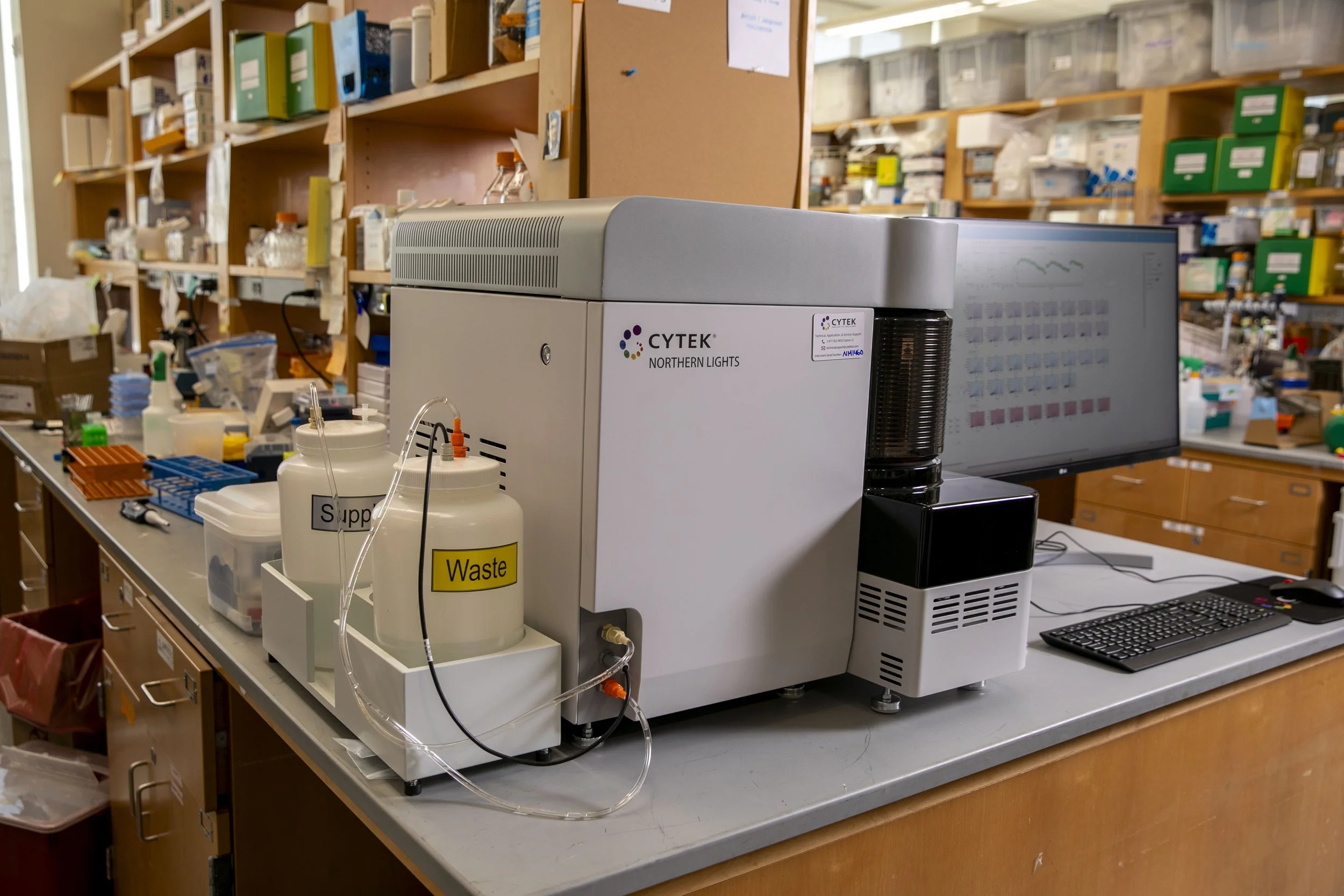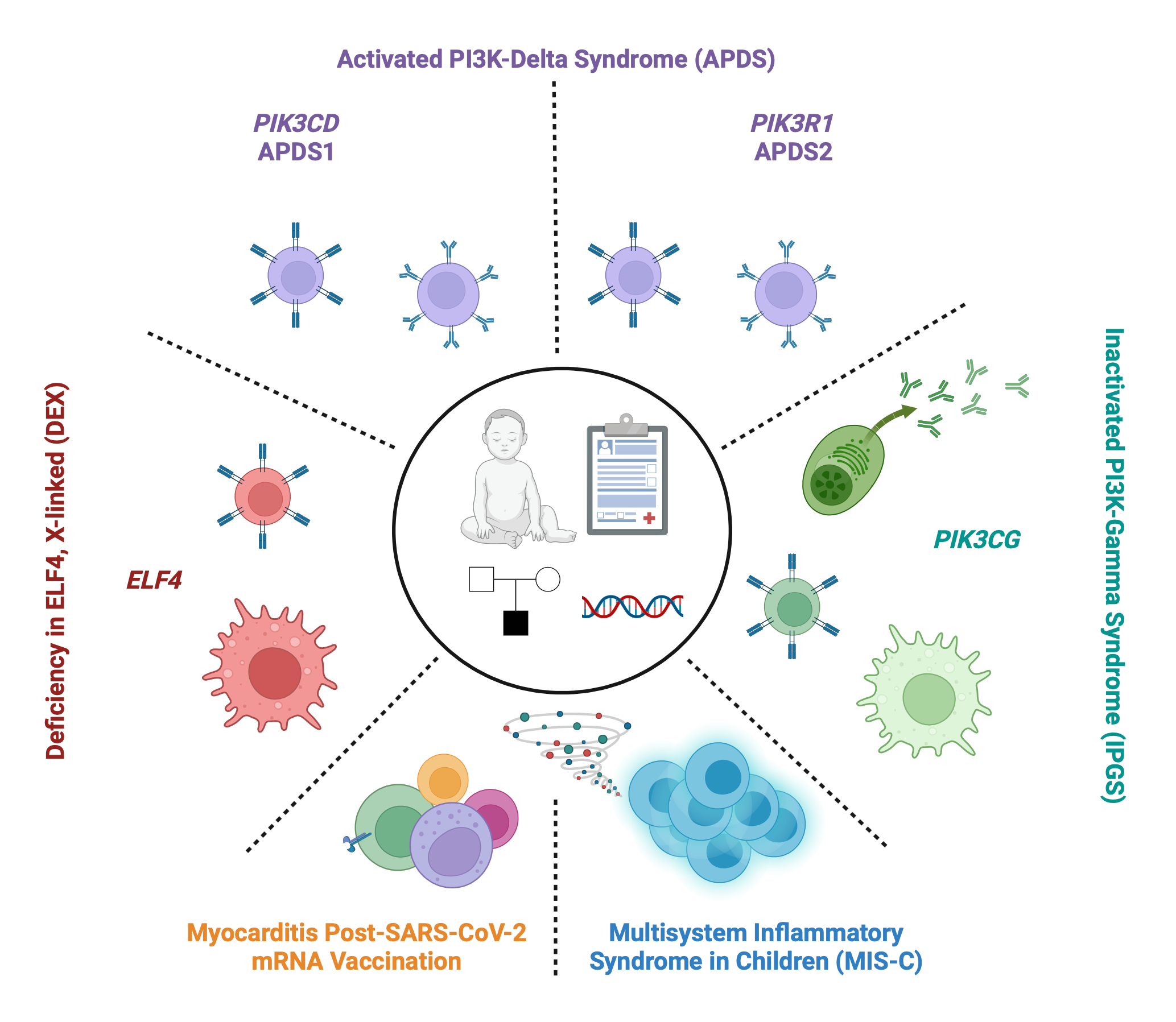The Lucas Lab's research interests build from our discoveries investigating new and suspected human inborn errors of immunity, which are rare and early-onset immune diseases caused by single-gene defects. We pursue research using genetics and genomics, signal transduction, transcriptional control mechanisms, cellular immunology, and in vivo preclinical models with major efforts dissecting the biology of T cells, B cells, and macrophages. We have a strong interest in advancing understanding of human immune function and dysfunction and advancing targeted therapies.
OVERALL Focus
The pursuit of scientific knowledge in biology takes many forms. For us, the most rewarding and impactful science starts with people, mostly children, who suffer from severe immune disorders and ends with new insights to improve their quality of life.
Silmultaneously, we are also advancing our understanding of fundamental immune processes. This goal drives us to integrate clinical, genetic, cellular, and molecular findings, to model disease, and to ask new experimental questions that could not have been asked without the insights gleaned from investigating how and why these patients’ immune responses are derailed.
We devote ourselves to helping individual patients and families while maximizing impact of their generous participation in our study through the application of lessons learned to other immune-related diseases and therapies. We study both primary immunodeficiencies (infection susceptibility) and autoinflammatory diseases (immune-mediated tissue damage) and feel privileged to collaborate broadly with many clinicians and scientists in this effort.
What We've Achieved
The lab’s focus on primary immunodeficiencies has largely centered around phosphoinositide 3-kinase (PI3K) signaling and disease mechanisms and treatments in patients with mutations in PI3K subunits, including ‘Activated PI3K-delta Syndrome’ (APDS) and ‘Inactivated PI3K-gamma Syndrome’ (IPGS). More recently, the lab has added an emphasis on studying inflammatory diseases, including SARS-CoV-2-associated ‘multisystem inflammatory syndrome in children’ (MIS-C) and vaccine-associated myocarditis. A major current effort centers on new biology illuminated by a monogenic autoinflammatory disease the Lucas lab named ‘Deficiency in ELF4, X-linked’ (DEX). Each of our research projects starts with an initial focus on dissecting pediatric immune diseases and aims to leverage that knowledge for new therapies, including precision medicine approaches in monogenic diseases. The rare diseases we study uniquely enable us to gain in-depth mechanistic insights into human immunology, thereby providing translational knowledge to improve understanding and treatment of a broader set of common diseases with immune involvement.

